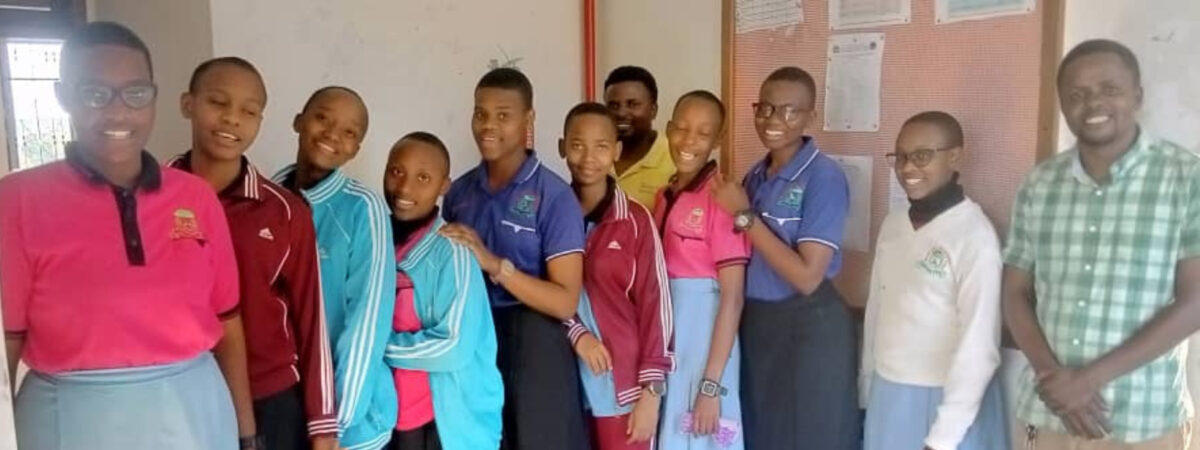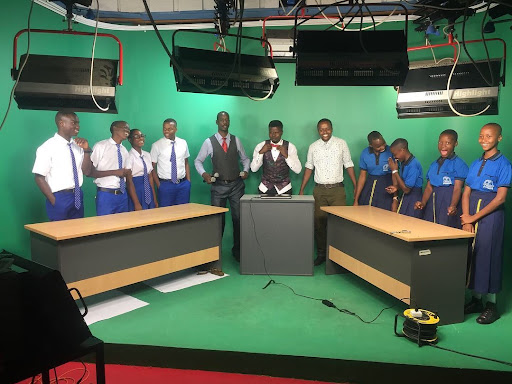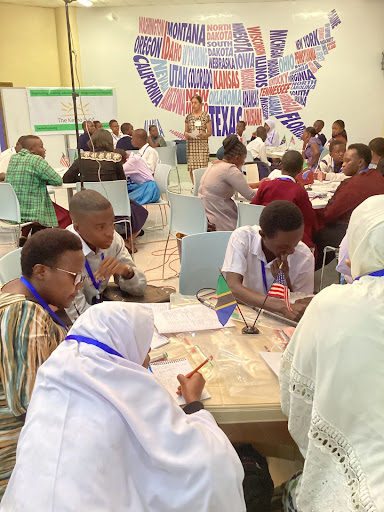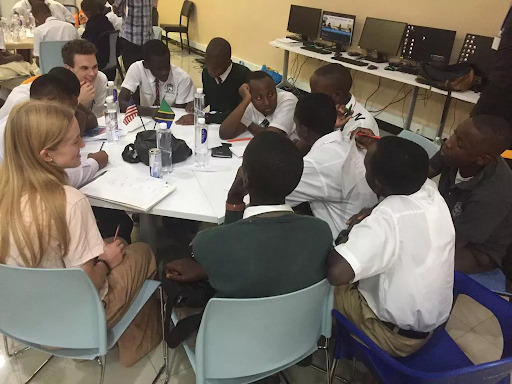
In recent years, competence-based learning has become a priority to public schools in Tanzania, and the Ministry of Education is working hard to transition from the older curriculum model of content-based learning to a more student-centered, competency-based curriculum. My students worked on the IQ Interschool Challenge TV program to examine the competency-based curriculum and English as a second language in public schools in the Lake Zone of Tanzania.

IQ Interschool Challenge TV program team preparing at the studio.
The IQ Interschool Challenge TV program that we created for Star TV media is presented as a series of three-part episodes. In the first part, students work on competency-based questions and answers. Next, we host a talent show where students can recite poems or songs, perform acrobatics, or showcase design work and technological innovations such as robotics. During the final third of the show, students present on science and social science topics, which provides them an opportunity to practice presentation skills and speak English, which is the instructional language in secondary schools in Tanzania.
This type of project matters to the community here because most parents complain that graduates in Tanzania are not competitive in the global workforce. Our Tanzania English Language Teachers Association (TELTA) team addresses this concern by helping students use hands-on activities and build skills in learning.

Team gathering at the American Corner Space in Mwanza.
In June 2023, 11 students and 5 coaches from Bozeman High School arrived in Mwanza, Tanzania to learn more about our program and host workshops with students from schools across the region.

Students from Mwanza gather with peers from Bozeman High School during their exchange visit to Tanzania.
The team from Bozeman High School in Bozeman, Montana is partnering with us to support the expansion of a Pan-African speech and debate league, which will have a profound impact not only in Lake Zone Tanzania, but also across the entire country and the continent. Alongside this, the Tanzania English Language Teachers Association (TELTA) is building out additional social media spaces to serve as a platform for more students and community members to learn.